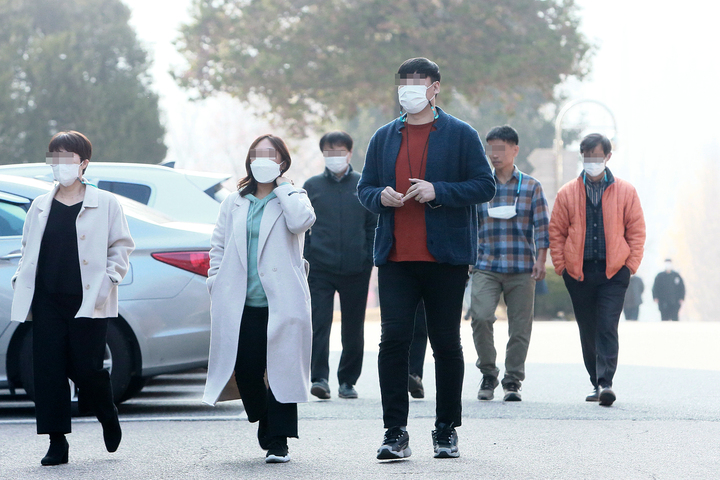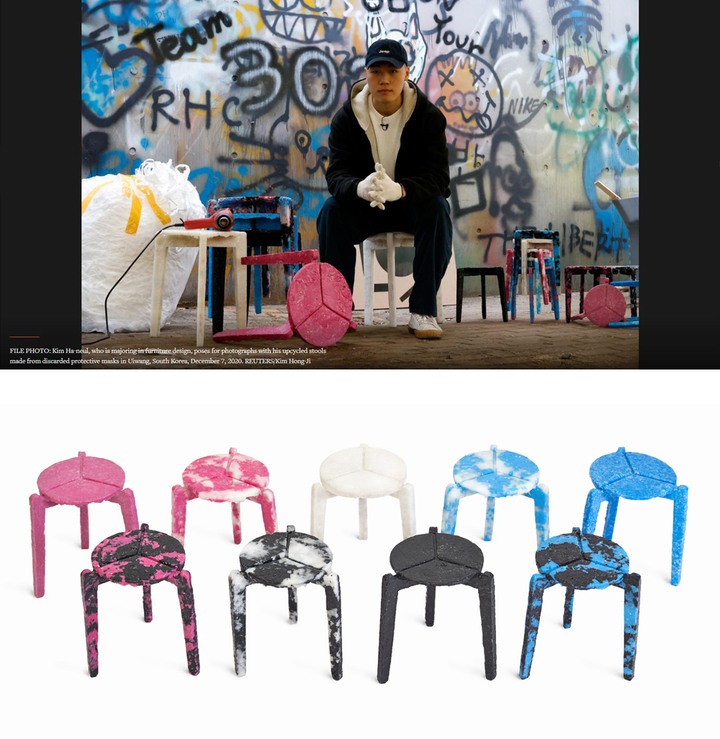Our everyday use of masks is inevitable in this era.As much as we emphasize importance of wearing masks, disposing well should be considered seriously
 How to Recycle Masks
How to Recycle Masks
Most masks are, of course, disposable; mask reuse, however, is more complicated. If used intermittently in places where there is less risk of contamination, masks may be reused by the original wearer. In order to do so, the masks must be dried in a well-ventilated place. They cannot be reused if dried with a hairdryer, disinfected with alcohol, or washed. It is also good to store masks in a zipper bag when not in use.
 |
| It is important to properly dispose of masks to protect our environment particularly in this era of pandemic where everyday use of masks is inevitable ⓒGyeonggi Province |
Dispose of Used Masks in a Standard Garbage Bag
As mask usage increases, the amount of trash also increases. With that said, there is one way to dispose of used masks so as to protect the environment. First, hold the straps with your hands and take your mask off carefully so that any possible contagions on the surface of the mask does not get on your hands. Then cut the straps so as prevent possible animal entanglement.Masks must be discarded in a standard garbage bag regardless of the material (e.g. nonwoven fabric, cotton, etc.). Cutting mask straps is crucial because wild animals can potentially become entangled in the straps and suffer greatly. Properly disposing of masks prevents this from happening, ensuring that used masks do not pollute the environment, hurt animals, or expose others to the risk of infection.
Artwork Made with Masks
Amid the COVID-19 pandemic, garbage problems stemming from disposable masks are emerging rapidly while mask wearing remains mandatory. Some individuals now make artwork using discarded masks. One Korean student who made chairs with discarded masks has drawn global attention.Kim Ha-neul, a student majoring in Living Design major at Gyewon University, set up a mask collection box in the school to collect about 10,000 used masks, thinking, "Why don't we recycle face masks made of plastic?" He also received more than a ton of defective masks from manufacturers.
The masks were stored in isolation for at least four days so as to eliminate the risk of secondary COVID-19 infection. Afterwards, rubber straps and tightening wires were removed, and masks were melted with a hot air fan for shaping before hardening.
 |
| Kim Ha-neul, a student majoring in Living Design major at Gyewon University, made artworks by recycling discarded masks ⓒGyeonggi Province |
While the graduation exhibition itself was canceled due to COVID-19, Kim hopes his story will convey a message to the public about the importance of saving the environment while supporting laws and policies relating to used mask collection and recycling.






%204.jpg)
%204.jpg)
%204.jpg)
%204.jpg)
%203.jpg)

COMMENTS